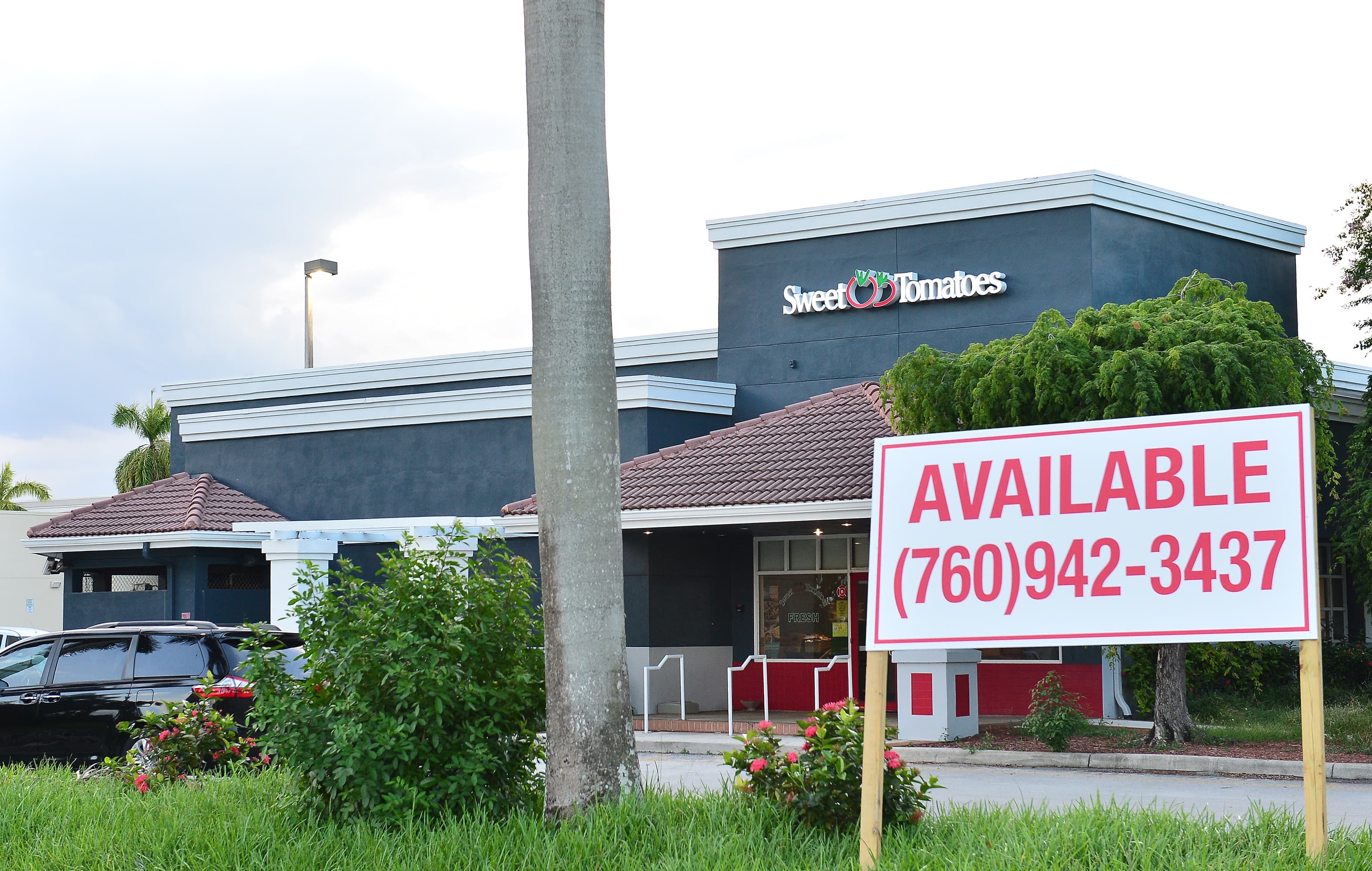An exterior view of Sweet Tomatoes restaurant, which have closed their doors, on July 08, 2020 in Pembroke Pines, Florida.
Johnny Louis | Getty Images
As Covid-19 cases continue to climb in cities and states around the country, businesses are being faced with a second wave of closures and potential layoffs.
The National Restaurant Association projects 100,000 restaurants have been closed down over the past two weeks under state and local government mandates, as the advocacy group calls on Congress for targeted relief for the hard-hit industry.
The trade group sent a letter to leaders in the House and Senate Wednesday, calling for specific aid for the nation’s restaurants, which are projected to lose $240 billion in revenue this year due to the pandemic. Some 8 million workers have been laid off or furloughed from March through May, the group says.
“As you work toward bipartisan agreement on a fourth coronavirus response bill, we offer a simple message: current federal recovery mechanisms are not enough to sustain the nation’s second-largest private sector employer,” the letter reads.
The group’s “Blueprint for Restaurant Revival” was sent to lawmakers, and lays out several strategies including passing the Restaurants Act, which would provide grants via a $120 billion recovery and revitalization fund. It also calls for allowing expenses covered by the Paycheck Protection Program loans to be tax-deductible, improving funding and terms for Economic Injury Disaster Loans and addressing business interruption claims and liability concerns for businesses.
“We are moving into this stop, start, on again, off again cycle,” says Sean Kennedy, executive vice president for public affairs at the National Restaurant Association. “It’s not sustainable and it’s capital intensive for an industry that has about 16 days of working capital on hand, and that was before the pandemic.”
Beyond just relief, the plan calls for a national strategy on testing and vaccines, prioritizing access for the food and agriculture supply chain.
The situation is dire for restaurants not just in the U.S., but around the globe as well. Facebook’s Global State of Small Business Report finds that globally, consumer-focused businesses were among the hardest hit with closure rates due to the pandemic, with 32% of hotels, cafes and restaurants closing down at the time of the survey. The data were collected from more than 30,000 businesses in 50 countries, and more than a quarter overall said they closed between January and May this year, with a third reducing work forces.
A second wave of PPP
Aid advocates including the National Restaurant Association are pushing for Congress to enact a second wave of the Paycheck Protection fund, with targeted support for minority and women-owned businesses in underserved markets. The program was extended through Aug. 8 for new applications, but those who took out loans are running out of time and capital.
A recent survey from the National Federation of Independent Business found that more than half of members surveyed had spent all of their PPP loan funds, with 44% likely not far behind.
What’s more, just under a quarter of borrowers either have or anticipate having to lay off one or more employees after using their loan. Of businesses that have applied for PPP loans, Economic Injury Disaster Loans or both, 46% anticipate they will need additional financial support in some form in the next 12 months.
Nearly half also say they have been impacted by new changes in reopening policies, creating more economic challenges.
“It needs to be much more flexible for small businesses, with a broader use of funds to help businesses operate safely,” said Karen Kerrigan, president and CEO of the Small Business & Entrepreneurship Council. The group is not calling for industry-specific relief, but is pushing to have smaller and underserved businesses focused on in the next aid package, and more widespread access to EIDL grants. “On the back end, we’d like to see a very simple forgiveness program, and guidance from the start.”
